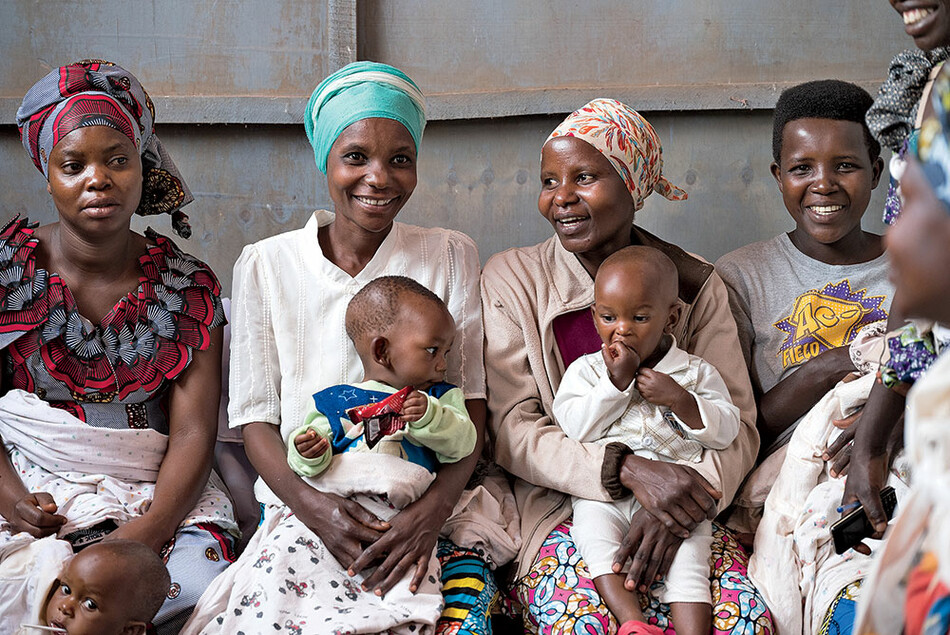One of the greatest achievements in global health over the past decade has been the sharp decline in the number of babies born with HIV, which has dropped by about two-thirds to approximately 120,000 per year. A major driver of this progress has been the work of researchers and practitioners at Columbia’s ICAP, a global health organization that, since its founding in 2002, has provided HIV testing or treatment to more than twelve million pregnant women across twenty-six of the world’s most vulnerable countries.
“We now know that a woman with HIV who takes antiretroviral drugs consistently during pregnancy and breastfeeding can virtually eliminate the risk of her baby acquiring the virus,” says Elaine Abrams ’82VPS, a Columbia professor of pediatrics and epidemiology and an ICAP cofounder. “But in countries with under-resourced health systems, it can be challenging to ensure that these women are reached, tested, and treated in the first place.”
Now ICAP is undertaking an ambitious new effort to further drive down mother-to-child HIV transmission rates in six nations — Kenya, Mozambique, Nigeria, South Africa, Tanzania, and Zambia — where, despite progress, transmission rates remain stubbornly high. In partnership with the Cape Town–based nonprofit Paediatric-Adolescent-Treatment Africa and with funding from the Gates Foundation, Columbia’s ICAP staff will collaborate with national health ministries to strengthen their maternal health-care systems and increase HIV testing and care for pregnant women and infants. As with most ICAP projects, Abrams says, Columbia personnel will focus on providing technical assistance to in-country health-care professionals and policymakers who will identify gaps in their health-care systems and find innovative ways to address them. Local stakeholders will then share insights with one another through a new information-exchange program called the HIV Impact Network for Vertical Transmission Elimination, or HIVE; Columbia researchers and local academics will study the results with an eye toward informing global-health-policy guidelines.
“The challenge now is scaling up HIV-prevention efforts across diverse international contexts — that’s where the learning happens, where the research is,” Abrams says.



